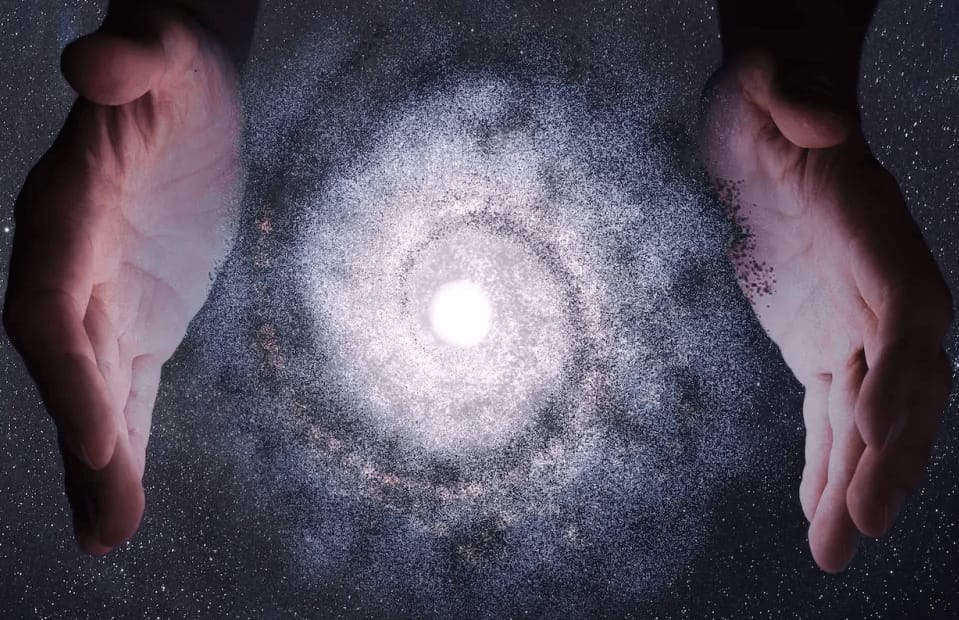- Faith Activist
- Posts
- The Evidence of God in Science
The Evidence of God in Science
Why the intricate design of the universe points unmistakably to a Creator.

When we come into the world, we know almost nothing. Through life, we learn by watching, listening, and experiencing. We learn from authorities such as parents and teachers. We learn from intuition, imagination, and reasoning. But all these methods can fail: authorities can be wrong, intuition can mislead, and even the sharpest reasoning can crumble if built on false assumptions.
Thankfully, we have one powerful tool that never lies “experience.” Experience allows us to test, observe, and discover truth in a way that is repeatable and verifiable. Science itself is simply the disciplined study of experience, and its greatest strength is its consistency.
And what do we consistently find when we examine the natural world? We find order. We find precision. We find systems that work together with astonishing complexity and reliability. These discoveries have led thoughtful people, from ancient times to today, to a powerful conclusion: the universe bears the marks of intentional design.
The Evidence of Dynamic Systems
Consider this: twigs and leaves might wash together in a stream and form a small dam a simple, static system that doesn’t move or function dynamically. But when we see a system with interrelated moving parts that work together for a clear purpose like a watch or an engine we instinctively recognize that it was designed. It didn’t come about by accident.
Science, with its rigorous methods, confirms this intuition. Over thousands of years, humanity has observed the natural world extensively. And in all that time, in every culture and every environment, we have never once seen a dynamic, reliable, functional system arise by random chance. Not once.
Atoms, planetary orbits, the human inner ear, and the Earth’s water cycle are far more complex than any machine humans have ever built. Each part of these systems works perfectly with the others. To insist that such order arose from chaos without intelligence is not scientific; it is a leap of blind faith.
The Scientific Argument for Design
Scientific studies follow a clear process:
Observation: We study what is happening.
Hypothesis: We propose an explanation that can be tested.
Testing: We run experiments or gather experiences to test the hypothesis.
Evaluation: We examine the results.
Conclusion: We determine whether the hypothesis holds up.
When we apply this process to the hypothesis that "random events can produce reliable, dynamic systems," the consistent result is failure. We have no evidence of complex systems arising from random chaos. Rather, experience tells us that systems require a designer just as every watch requires a watchmaker.
In light of this, we can say with confidence the universe is not an accident. Its dynamic systems both simple and complex confirm the presence of a Creator. This conclusion is as solid as any other scientific principle derived from repeated observation.
Following the Evidence
Yet, modern culture often encourages us to believe the opposite. We are told that everything in existence the galaxies, planets, life on earth assembled itself by random chance, given enough time. But if random chance cannot produce even a simple machine, why should we believe it created the cosmos?
To ignore the overwhelming evidence of design is to ignore our own experience. As King David declared long ago, “The heavens declare the glory of God, and the sky above proclaims his handiwork” (Psalm 19:1). When we gaze at the stars, marvel at a snowflake, or listen to the intricate harmony of a bird’s song, our hearts instinctively sense that these things are not accidents.
Why Some Reject the Evidence
People of faith have never doubted the Creator’s existence. Scientific insights only deepen their awe and understanding. But for some, belief in God is difficult. Perhaps their image of God is clouded seeing Him as distant, harsh, or uncaring. Such misconceptions can lead to resistance, even when evidence points directly to His reality.
Others, uncertain and agnostic, may be waiting for "undeniable proof." Yet, in many ways, the proof has always been here written into the very structure of the universe. The laws of physics, the fine-tuning of life, and the breathtaking beauty of creation all whisper the same truth: there is a Designer.
The Ultimate Designer
Science and faith are not enemies they are allies. Science, when followed honestly, does not diminish God but magnifies Him. The Creator is not hiding. His fingerprints are everywhere. Whether in the spiral of a galaxy or the coding of DNA, the evidence of divine intelligence is unmistakable.
The apostle Paul wrote, “For his invisible attributes, namely, his eternal power and divine nature, have been clearly perceived, ever since the creation of the world, in the things that have been made. So they are without excuse” (Romans 1:20). God has revealed Himself in both Scripture and creation. Science, far from disproving God, only highlights His wisdom and glory.
So perhaps the real question is not, “Does science confirm God?” but rather, “Are we willing to see what the evidence shows?”
If this perspective opened your eyes to the wonder of God’s design, share it with someone seeking truth or subscribe to our newsletter for more reflections on how faith and science work together to reveal the Creator.
Reply